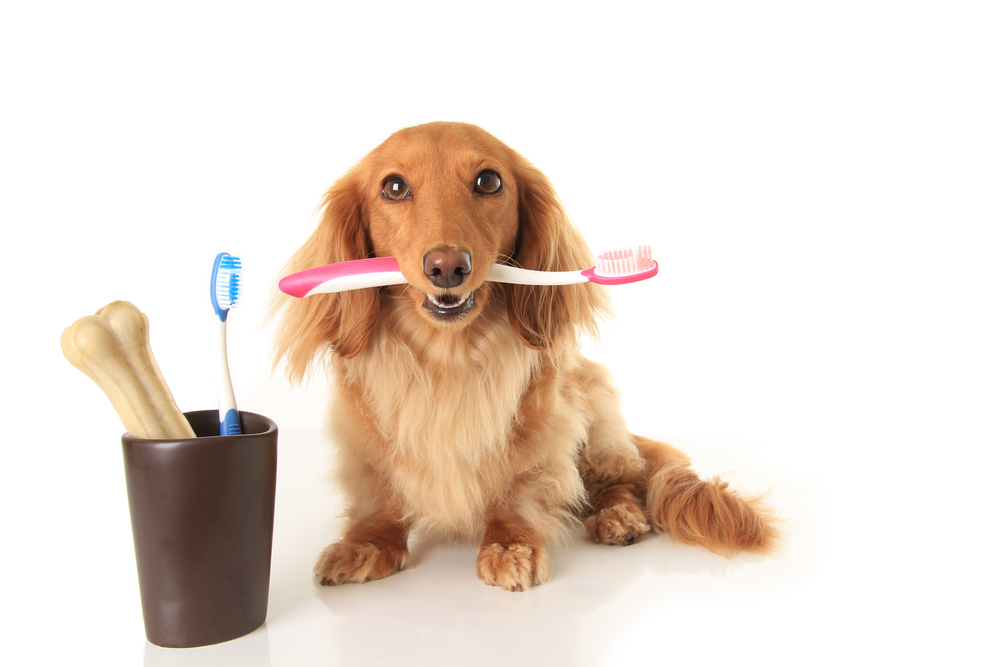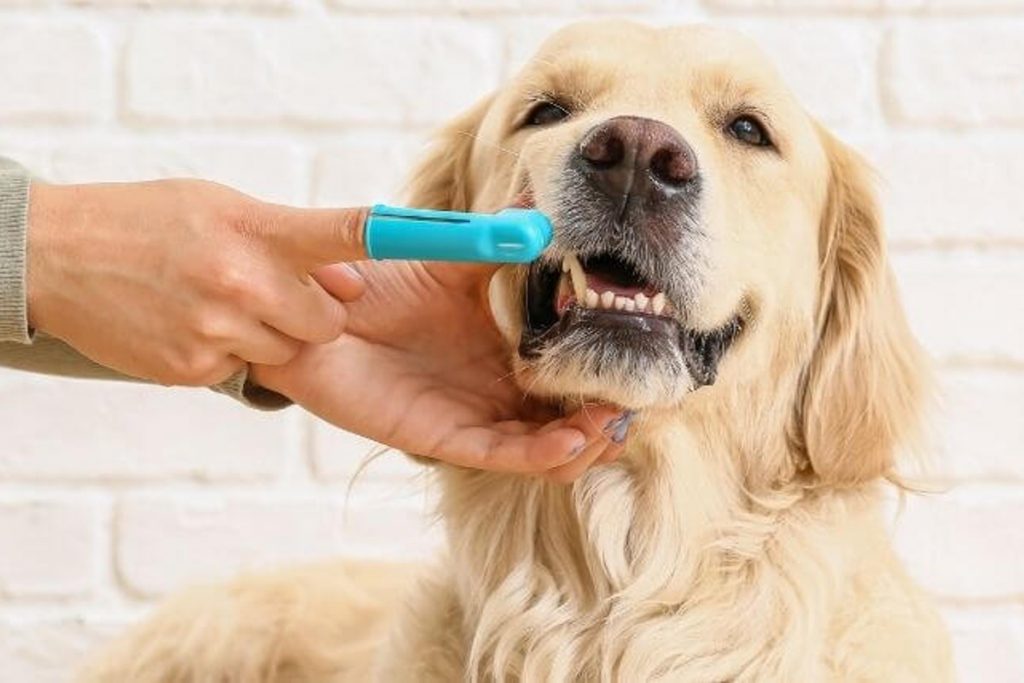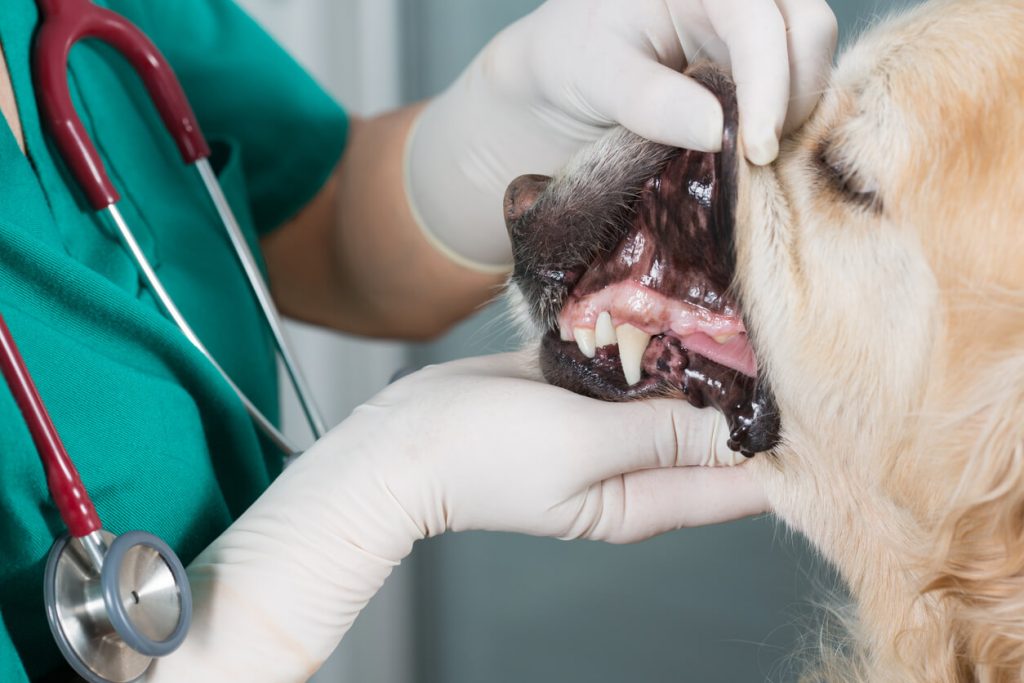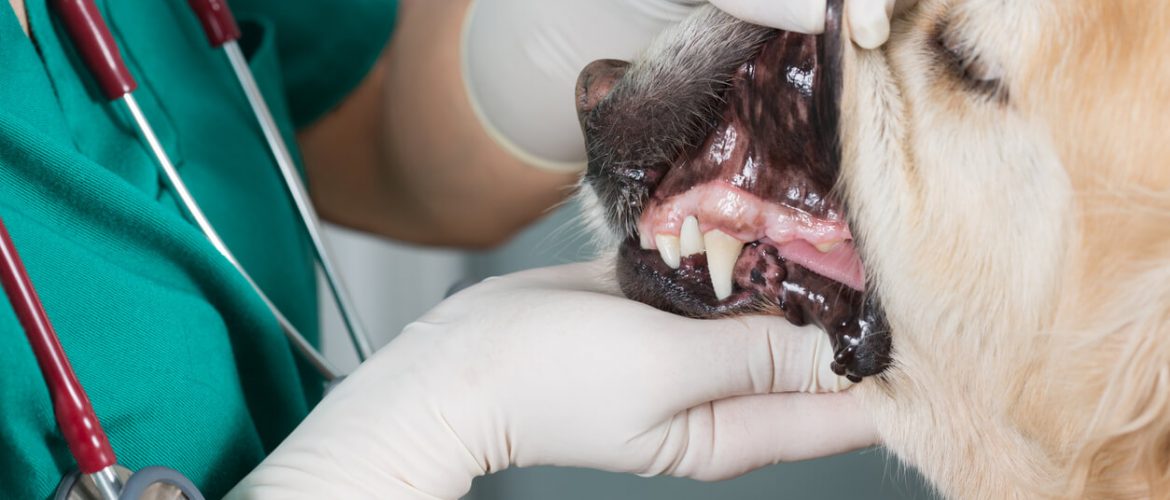
Your pet’s dental health is just as important as yours! Periodontal disease is the most common condition from a lack of dental care in adult dogs; most dogs have some form of the disease by the time they’re 3 years old. Your pet can experience plaque buildup that will turn into tartar, just like us. This buildup can lead to inflamed gums (gingivitis), gum disease, and bone or soft tissue loss. Getting your pet used to brushing their teeth is the first step to a happy, healthy canine!
When getting your dog used to the idea of having their teeth brushed, keep it short and positive. Start slowly, do not rush things, and always associate having the mouth handled with something rewarding. Give lots of praise and make it fun. Start by handling the lips, and soon you will be able to rub the teeth and gums with your finger. Next, use a cloth or gauze to scrub the teeth. Concentrate on the outside of the teeth, especially the four molars, canine teeth, and other problem areas.
When the pet is comfortable, you can switch to a toothbrush. Please use a toothbrush that is specifically made for pets. These toothbrushes are designed to be smaller and have softer bristles. There is a soft-finger brush available if your pet does not like the plastic brush in their mouth. Use toothpaste designed for dogs; we wouldn’t want to use our toothpaste because it’s formulated differently so the dog can ingest it without causing an upset stomach.
Brush back and forth three to four times, concentrating on the areas described above. It is generally not necessary to brush the inside surfaces. Just like humans, dogs should have their teeth brushed twice a day. Brushing more than three times a week is helpful; after every meal is best.

Some telltale signs that your pet may need a dental cleaning are bad breath, swollen or bleeding gums, difficulty eating, yellow or brown tartar deposits along the gums, and excessive drooling. If your pet has any signs of these, call your veterinarian for an exam; they may need a dental cleaning.
If your pet decides brushing their teeth just isn’t for them, there are a couple of other ways to help your pets dental health. Hill’s provides a couple of different foods that provide balanced nutrition to support your dog’s teeth (these are not suitable for use with puppies or pregnant dogs). C.E.T. is available as a toothpaste, mouth rinse or spray, and chew. These are effective alternatives that can enhance the mouth’s protective mechanisms against tartar and plaque.
Chewing abrasive treats is helpful but may be fattening. They cannot replace the benefit of brushing. DO NOT feed your pet bones or antlers. They may break the teeth or shatter and cause severe damage to the digestive system.
Here at Heart Arrow, we offer these dental cleanings year-round. We do specials on dentals in February and August every year! It’s never a better time to call and schedule an exam to see if your pet may need a dental cleaning. The above care will greatly improve your pet’s dental health and reduce the need for professional care.


